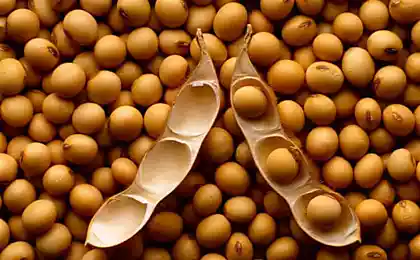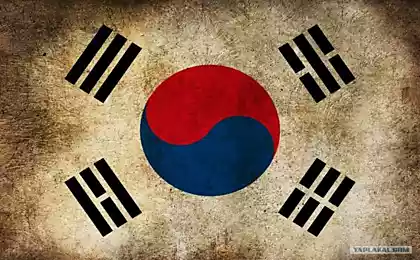730
Why Asians health: 12 Reasons
We often hear and read in the media that Asians in general live longer than representatives of other nations. And it is true: for example, on the Japanese island of Okinawa, people have the highest life expectancy in the world. < Website publishes a selection of a dozen reasons why this is so. Much can adopt!

1. Asians eat fish almost every day h3> The fish are on average slightly more protein per 100 grams than in meat, a lot of useful nutrients, among them including omega-3 fatty acids. This essential substance needed by the body to maintain immunity, prevention and suppression of chronic and other infections.
2. They eat the animal is completely h3> We are so often associated with poverty, but the eating of almost all organs and viscera of the animal - in the Asian tradition: the skin, head, neck, bones, tails, the ventricles, beaks, eyes, liver ventricles - the cause is all. By-products are rich in fat-soluble nutrients, collagen and beneficial bacteria.
3. They eat soup h3> The traditional eating a variety of soups also allows better control of satiety, which is associated with low levels of obesity among Asians.
4. Seaweed - one of the pillars of the diet h3> With algae (rich in iodine), which are added in a variety of traditional dishes, Japanese residents consume an average of about 3-5 milligrams of iodine per day, while the average resident of the US diet, For example, iodine (mostly consumed salt) contains 15-20 times less.
5. They rarely eat foods based on wheat h3> Asians traditionally have not grown wheat and rarely eat foods based on flour - no bread, no muffins or pastries. And the traditional noodles at them or buckwheat, or on the basis of rice and eggs, and flour is not as common as in Western civilization. Wheat products inherently - fast carbohydrates (which "favor" spikes in blood sugar and threaten to overeating, obesity, diabetes), in Asia and forced to replace the traditional rice - slow carbohydrates, which is much more useful to baking.
6. They eat a lot of fermented products h3> In the process of fermentation (biochemical processing by enzymes contained in most of the substance) are added to the products beneficial bacteria. In Asian cultures have diversified their diet using various fermentation processes: from soybeans make miso, natto, tempeh, soy sauce. They even fermented cabbage and tea. With the fermentation process associated with the appearance of beneficial bacteria in the food.
7. They usually avoid sweets h3> Up to 21 century in Asia, we ate very little sweets, water and drank tea in its original form, without the addition of syrup and sugar. The main source of fructose were mainly fruit.
8. They use many different herbs and supplements based on herbs h3> Even traditional supplements based on herbs (rosemary, thyme, cinnamon, cumin, and many others) have a number of useful properties, including improved digestion, lowering blood pressure, cholesterol, improves insulin sensitivity, have antimicrobial, antibacterial and antifungal properties. Finally, contain antioxidants. That is, a number of useful properties that do not have ketchup.
9. Healthy eating their priority h3> In the Asian culture, food - an event, not a race. Traditionally, tea drink 30-60 minutes before the main meal to prepare the stomach, eating with chopsticks also occurs without reason - you just can not miss them more than necessary. As a result, the process of eating slowly the traditional European approach, and thus a feeling of fullness comes earlier, when eaten is not so much.
10. They have a lot of walk and squat h3> The residents of China (at least until the 90s of the last century), and went to work at physically demanding jobs than residents of other countries. This fact not only allowed them to make a living, but also to be more healthy and strong. And high levels of spending calories allow them to fully indulge in carbohydrates, incoming "due to" a forced diet of rice.
11. Their medicine is focused on prevention rather than treatment h3> While Western medicine is more successful and more successful struggle with the consequences in distortions in the health, traditional Chinese medicine acts on the root of the problem, using diet, healthy habits and other practices aimed at prevention of problems, rather than the effects of the treatment.
12. Their approach to fitness - the complex: and work with the body, and the work of the brain h3> The Western approach to fitness has a physical dimension - the body of his torture, eastern practices go from the head - are working with the consciousness, the brain: a lot of meditation, inner work - what are lacking in the Western approach to fitness.
























